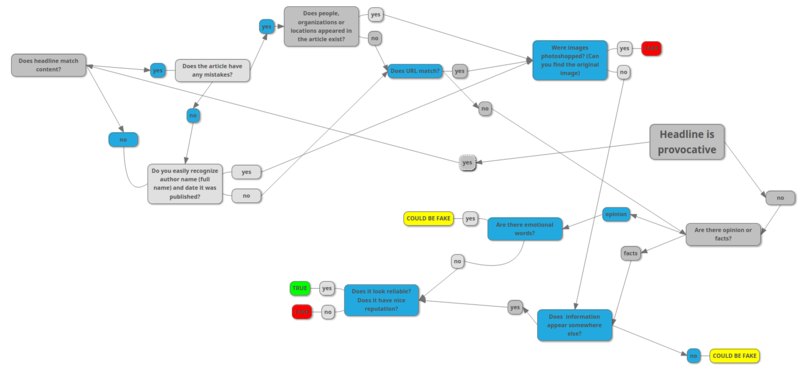Goal
Participants are able to verify information and articles and apply their criteria to fake news.
Steps
1. Start with a short reflection task:
- What kind of media do you read/watch/use? Why?
- Do you trust this media? Why?
- How do you verify information?
2. Print or paint on the flipchart the mindmap “SPOT the Fake News”:
3. Divide participants into 4 small groups.
4. Each group receives 3-4 articles.
5. Participants read the articles in groups and discuss based on the mindmap “SPOT the fake News” whether the articles contain fake news.
6. Participants come back to the big group and discuss their results.
Reflection
- Was it hard to identify fake news?
- What kind of problems did you face/encounter?
- What kind of hints/insights will you take into your everyday life?
Created by:
Barbara Maderak-Krolik, Daniel Kiermut, Giorgi Iaganashvili, Maria Tymoshchuk, Tamta Shekiladze
Variation
The flow diagram might follow journalistic fact-checking/verification criteria, in example those used by factchecking or media organizations in your country.


